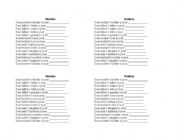
|
Family Relationship Riddles
These are riddles to help students think about the meaning of the family vocabulary words, not just the translation. Suggestion: Use in preparation for listening to "I�m My Own Grandpa."
Level: elementary
Age: 8-17
Type: activity-card
Downloads: 15
|
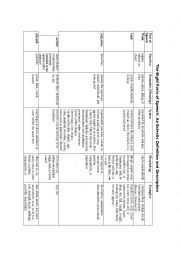
|
Parts of Speech: Various Descriptions
As your students learn to identify nouns and verbs through multiple tests, they will learn to decode text better, interpret dictionary information better, and use the words better in their writing. I used several sources for this information, mainly The Grammar Book (Heinle), but also my own deductions.
Level: advanced
Age: 15-100
Type: grammar-guide
Downloads: 9
|
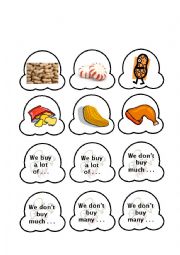
|
Popcount! (game) Game Card Sheet 4
Inspired by an alphabet game for preschool students, this game practices instead count and noncount nouns + food vocabulary. I made up this game to review the vocabulary given in Unit 12 of Cambridge�s Touchstone Level 1 materials. There are 6 sheets of game cards and a sheet with the correct number of logos (for pasting on the back of the cards).
Level: elementary
Age: 8-17
Type: activity-card
Downloads: 17
|
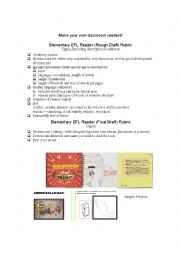
|
Guidelines for writing classroom readers
Students can help develop a classroom library! When each student writes and illustrates a story, there will soon be lots of reading material! These guidelines help students in creating proper expectations for the project.
Level: advanced
Age: 12-100
Type: activity-card
Downloads: 15
|
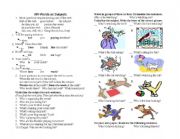
|
Wh-Words as Subjects
This worksheet first shows the difference between regular wh-questions, which invert the subject and the (auxiliary) verb, and questions in which the wh-word is the subject. Students identify the subject in several sentences, and then they select the picture that shows the difference between the wh-word acting as subject and as object--requiring th...
Level: elementary
Age: 12-17
Type: grammar-guide
Downloads: 11
|
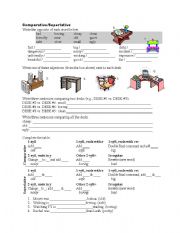
|
Comparative/Superlative Worksheet
Students work from dependent to slightly freer practice, completing a table with the appropriate forms for normal and irregular forms, write the opposite of adjectives, and complete another table on spelling changes; write sentences using the most appropriate comparative or superlative forms based on general knowledge and pictures. *Images from Mic...
Level: elementary
Age: 10-17
Type: worksheet
Downloads: 72
|
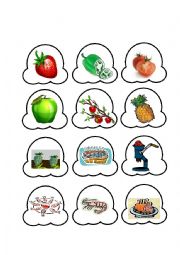
|
Popcount! (game) Game Card Sheet 2
Inspired by an alphabet game for preschool students, this game practices instead count and noncount nouns + food vocabulary. I made up this game to review the vocabulary given in Unit 12 of Cambridge�s Touchstone Level 1 materials. There are 6 sheets of game cards and a sheet with the correct number of logos (for pasting on the back of the cards).
Level: elementary
Age: 8-17
Type: activity-card
Downloads: 15
|
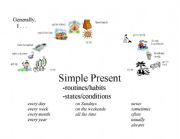
|
Simple Present and Present Continuous Posters
Posters demonstrating the meaning (with pictures, key words/phrases)and form (with example sentences)of the simple present and present continuous.
Level: elementary
Age: 12-17
Type: grammar-guide
Downloads: 14
|
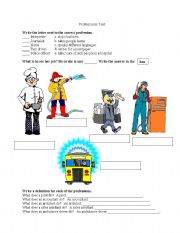
|
Professions Test
Three-part test on professions
Level: elementary
Age: 8-17
Type: worksheet
Downloads: 0
|
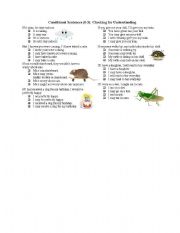
|
Conditional Meaning Check--Zero to 3rd
This worksheet will stimulate discussion about the meaning of the different conditional forms (zero, first, second, and third). Students cannot complete the worksheet without thinking about the meaning. There is room on the page for two copies of the worksheet. (It was too large to upload that way.) If you remove section headings and go back to 1 c...
Level: advanced
Age: 14-17
Type: worksheet
Downloads: 5
|